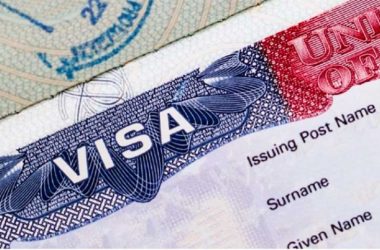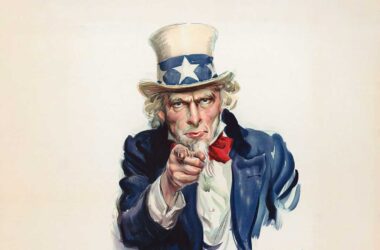
The Saint Lucia National Reparations Committee (NRC) earlier this week co-hosted, with the Jamaica-based UWI Center for Reparations Research (CRR) the fourth Virtual Schools History Lecture Series, with virtual presentations by two prominent Haitian women historians and researchers offering Caribbean students new perspectives that showed CARICOM’s most populous nation as having set the early stage for much that’s happened in the Caribbean and the world since its Revolution in January 1804.
They explained how it was the Haitian Revolution that first rang the bell highlighting the sunset for Slavery long before Garveyism set the stage for the Black Lives Matter movement; and one, referring to the ‘Black Panther’ movie, said Haiti’s own national economic foundations and its overall valiant historical contributions to struggles to end the Slave Trade and put Human Rights and Equality on the global agenda at the time, allows for it to today be described as ‘The First Wakanda’.
Under the theme ‘Slavery, Resistance & Emancipation: The Haitian Revolution in Global Perspective’, Professor Bayyinah Bello, a Historian and Anthropologist from the State University of Haiti and President of the Haiti-Jamaica Association Myrtha Desulme, each offered different perspectives on aspects of Haiti’s rich history.
They implored CARICOM students to do their best to learn more than being taught about Haiti and its place in Caribbean history, to strive to better know its contribution to world history and to never forget it’s also a country that CARICOM citizens know too little about.
They explained why and how Haiti’s leaders led the world’s very first slave revolt, which created the world’s first Black Republic, becoming the first nation to outlaw slavery and to ignite the start the end of the Slave Trade worldwide.
They revealed how Haiti offered ‘Honorary Citizenship’ to Blacks long before South Africa adopted ‘Honorary Whites’, after a Caribbean Revolution that defeated France, Spain and Britain, leading to the construction of an empire in this part of the world that was, apart from the USA, the only other country in the Americas to mint its own gold and silver coins and with over 200 ships armed with cannons.
Haiti’s Unilateral Declaration of Independence was never recognized by France and Europe and after isolating it through trade and travel embargos and sanctions, also became the first country to pay Reparations for Revolution to former French slave-masters worth over 90 million Gold Francs, which Haiti has to pay over a 122-year-period (from 1825 to 1947), anchoring it in persistent poverty.
They revealed how Haiti helped the independence struggles in Cuba, Jamaica, Ecuador and Puerto Rico; how its leaders expressed sorrow at being unable to send troops to French-held Martinique and Guadeloupe in response to calls for help from freedom fighters — and also contributed humanitarian food aid to Greece during a 19th Century famine after it was abandoned by European neighbors.
The historians showed how the Haitian Revolution influenced American freedom-fighter Nat Turner — and Haitian slaves led and joined revolts in Louisiana after the European enslavers fleeing the Revolution carried along their ‘slave property’ to their new homes.
CRR Director Professor Verene Shepherd, who moderated the two-hour session, urged Caribbean education decision-makers to save History as a subject at the region’s schools by making it compulsory, failing which today’s students can be left to grow without knowing their true history.
The virtual History lectures were also recommended for CXC, CAPE and CSE students and proponents advocated adoption of new and more relevant History texts, especially by Caribbean scholars, including W. Arthur Lewis’ ‘Labor in the West indies’, adopted by CARICOM as the Blueprint for Reparations for Slavery and Native Genocide being sought from Britain and European union member-states.
Like everyone else, I was a learner of much I didn’t know about Haiti that I never learned at school — and never taught to my sons or daughter, or my teen-aged grand-daughter.
The presenters lamented that while Haiti is a CARICOM member-state with the richest history of all and despite Haitians speaking the same Kweyol language as in Dominica, Saint Lucia, Martinique and Guadeloupe, it’s still, by far, the least-known in the Caribbean, thanks to the deliberate campaign to misrepresent a country that had 4,000 years of its own name and history before the Europeans arrived in 1492.
Many learned for the first time how the Haitian Empire was set-upon and destroyed by Napoleon (whose brother they defeated in battle) — and later by Roosevelt, both insisting Haiti must not become an example to oppressed people around the world, just like President Ronald Reagan also insisted regarding the Grenada Revolution becoming an example American Blacks; and why Haiti’s President Jean Bertrand Aristide was kidnapped and forced into exile in South Africa after demanding that France repay the Reparations money.
We also learned that Danny Glover, the block-busting African-American author (who’s lent his voice to the Reparations Movement as a United Nations Goodwill Ambassador) has been stalled from producing a film about the Haitian Revolution, by financiers and social engineers demanding that he have a greater number of White actors than truly reflected in Haiti at the time.
I was very pleased to have shared in the double-barreled New Caribbean History lesson delivered online by the two Haitians, reinforced by Professor Shepherd’s contact-tracing of the connections between Jamaica and Haiti, including that 300 Jamaican slaves sought and got refuge and citizenship in free Haiti despite demands by the British authorities in Jamaica for their ‘slaves’ – and that nearby Jamaica was also the ultimate quiet refuge for generations of retired Haitian leaders over time.
In this age when sharing means more than ever before, I’m also glad that the lectures were shared, not only with the rest of the Caribbean, but virtually with Caribbean people and citizens of the entire world.
And that’s why, I endorsed the call for us all to learn more about what I described as ‘Ayti – Peyi nous-toute!’ (‘Our Country, Haiti!’)













